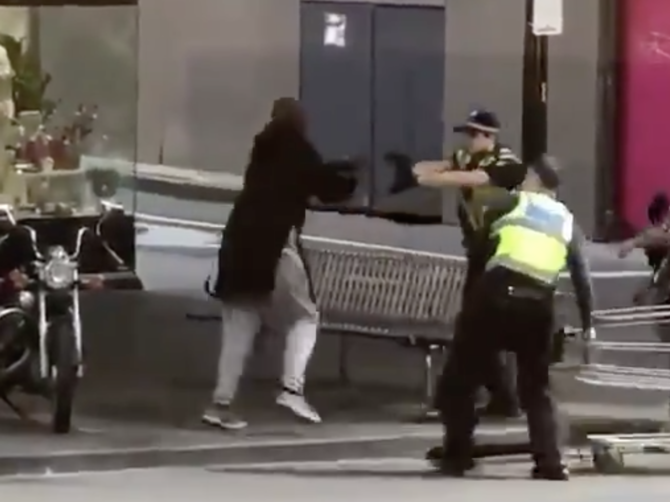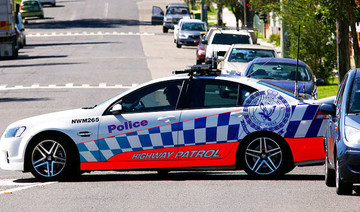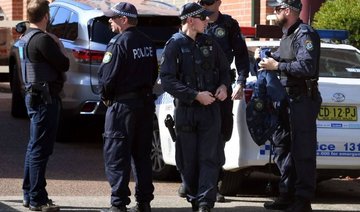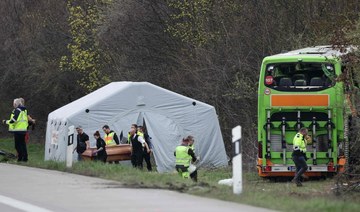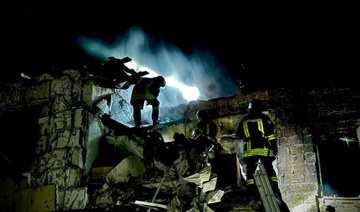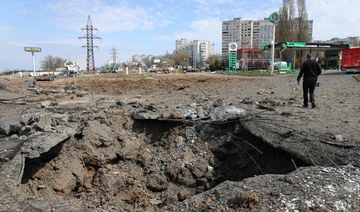MELBOURNE: A Somali-born man set fire to a pickup truck laden with gas cylinders in the centre of the Australian city of Melbourne on Friday and stabbed three people, killing one, before he was shot by police in a rampage they called an act of terrorism.
The utility truck carrying barbecue gas cylinders burned on busy Bourke Street just before the evening rush hour as the driver stabbed bystanders and attacked police.
The cylinders did not explode and the fire was put out in 10 minutes, by which point the attack was over.
One killed several injured in #Melbourne gas #attack and #stabbing rampage #Australiahttps://t.co/89hgxFsjqq pic.twitter.com/ZgKix1kgAh
— Arab News (@arabnews) November 9, 2018
"We are still trying to piece together whether the vehicle was lit then he got out the car or whether he got out the car and then the vehicle took flame," Victoria Police Commissioner Graham Ashton told reporters.
Video posted to Twitter and broadcast on television showed the man swinging a knife at two police officers, while his truck burned in the background.
One of the officers shot the man and he collapsed to the ground clutching his chest, the video showed. Other footage showed two stab victims lying on the ground nearby.
The attacker died in hospital, as did one of the victims, Ashton said. "From what we know of that individual, we are treating this as a terrorism incident," he said of the attacker.
Daesh said it carried out the attack, without providing any evidence. The militant group also claimed responsibility for a deadly siege in the city in 2017 when a Somali man was killed by police after taking a woman hostage.
Police gave no information identifying the Melbourne attacker but Ashton said the man was known to them and intelligence authorities because of family associations.
All of the victims were men, Ashton said. He declined to release their names because police were still in the process of contacting families.
Asked if the man had recently travelled to Syria he said: "That is something we might be able to talk more about tomorrow."
Australia has been on alert for such violence after a Sydney cafe siege in 2014, and its intelligence agencies have stepped up scrutiny, though there was no warning of the latest attack.
Authorities say Australia's vigilance has helped to foil at least a dozen plots, including a plan to attack downtown Melbourne at Christmas in 2016.
Prime Minister Scott Morrison said in a statement released on Twitter: "Australia will never be intimidated by these appalling attacks."
Ashton said there was no longer a threat to the public, but that security would be boosted at horse races and Remembrance Day memorials over the weekend.
Video posted to social media showed chaotic scenes as bystanders scattered while the attacker fought with police and his victims lay bleeding on the footpath.
One man charged at the tall attacker, wearing a long black shirt, with a shopping trolley just before police drew their weapons.
A witness, Markel Villasin, told Australian Broadcasting Corporation radio: "Bystanders were yelling out 'just shoot him, just shoot him'." They did.
Victorian Premier Daniel Andrews said the attack was "an evil, terrifying thing that's happened in our city".
Warning text messages were sent after the attack and police sealed off the downtown area, usually busy with shoppers and diners on a Friday evening. Some cordons were lifted later, though the immediate crime scene would be sealed until Saturday, police said.
Memories remain fresh of a fatal but not terror-related attack on the same street last year, in which a man drove his car at pedestrians at high speed, killing six people and wounding about 30. That prompted the city to install hundreds of security bollards. The driver is currently on trial.
In December 2014, two hostages were killed during a 17-hour siege by a "lone wolf" gunman, inspired by Daesh militants, in a cafe in Sydney.





